nuclear bomb
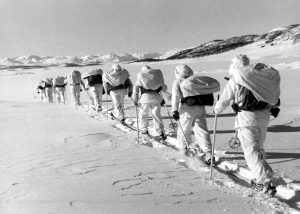 Nine parachutes floated silently to the Earth on a calm February 27, 1943. Their mission was to blow up a Nazi-controlled heavy water plant in Vemork, Norway. The men had been specially trained by British Special Operations, and they had been chosen to carry out this vital mission. Heavy water was a crucial element in the production of plutonium, an ingredient for the nuclear bomb Hitler’s scientists were feverishly attempting to build. The plant at Vemork was the only such facility in the world.
Nine parachutes floated silently to the Earth on a calm February 27, 1943. Their mission was to blow up a Nazi-controlled heavy water plant in Vemork, Norway. The men had been specially trained by British Special Operations, and they had been chosen to carry out this vital mission. Heavy water was a crucial element in the production of plutonium, an ingredient for the nuclear bomb Hitler’s scientists were feverishly attempting to build. The plant at Vemork was the only such facility in the world.
The plant at Vemork was heavily fortified, and it remoteness made it impervious to bombing. It could only be destroyed on site, and for the men, parachuting in was just the beginning of the mission. The men would also be required to scale a 500-foot-high cliff in the dead of winter, and infiltrate a heavily guarded basement laboratory. The nine Norwegians, led by 23 year old Joachim Ronneborg, did just that, successfully detonating  explosives that shut down the facility. The destruction of the Vemork plant was crucial in Albert Speer’s decision to halt attempts to produce a Nazi atomic weapon.
explosives that shut down the facility. The destruction of the Vemork plant was crucial in Albert Speer’s decision to halt attempts to produce a Nazi atomic weapon.
The United States began early nuclear research first, but Germany was moving forward with its own nuclear energy research and atomic bomb program. In April 1939, Germany began a secret program called the Uranverein or “Uranium Club.” The German program recruited some of the top scientific minds in Germany, including recent Nobel Prize winner Werner Heisenberg. It was led by physicist Kurt Diebner. The Uranium Club was getting dangerously close to making an atomic weapon, and it had to be stopped. Hitler could not win this one.
Had nine Norwegian soldiers not trekked into the cold on that day in February 1943, it is hard to say how much 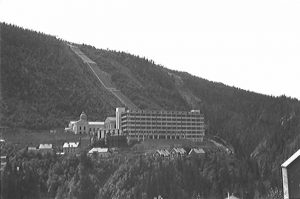 longer the war might have lasted, or how much destruction might have been carried out. Their brave and selfless act saved many lives to be sure. At the very least, Operation Gunnerside should be recognized as one of the most successful SOE missions during World War II. Ronneborg and his squad fully expected this mission to be a one-way trip. It never occurred to them that they might survive. Nevertheless, the operation brought with it zero casualties, and temporarily destroyed the Germans’ single source of heavy water at the time. Ronneborg later commented that “London could have suffered a different fate and ended up ‘looking like Hiroshima’ if his team had failed.”
longer the war might have lasted, or how much destruction might have been carried out. Their brave and selfless act saved many lives to be sure. At the very least, Operation Gunnerside should be recognized as one of the most successful SOE missions during World War II. Ronneborg and his squad fully expected this mission to be a one-way trip. It never occurred to them that they might survive. Nevertheless, the operation brought with it zero casualties, and temporarily destroyed the Germans’ single source of heavy water at the time. Ronneborg later commented that “London could have suffered a different fate and ended up ‘looking like Hiroshima’ if his team had failed.”
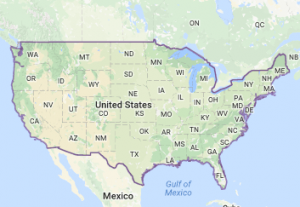 For many years the United States and Russia, at one time the Soviet Union, have had an unusual relationship. Depending on what Russia is trying to do, they might be our enemy, or they might be our ally. I understand that different nations have different goals, different values, and different motives, but it still seems odd to me that in one war, we could be allies and in another war, we become enemies. It could seem a little bit like two childhood friends, who are best friends one minute and worst enemies the next minute. The only exception would have to be the fact that trust doesn’t really fit in with the rest of the characteristics of the relationship between the United States and Russia. I suppose that becoming allies then, becomes a matter of finding an enemy who is doing things you can’t accept, and another enemy who agrees with you on your dislike of the actions of the first enemy…if that makes sense. I think that my prior statement makes as much sense as the United States being an ally of Russia, but that is what they have been…sometimes. I think the most difficult part of that kind of relationship would have to be the point when the relationship turns from ally to enemy again, because it really is inevitable.
For many years the United States and Russia, at one time the Soviet Union, have had an unusual relationship. Depending on what Russia is trying to do, they might be our enemy, or they might be our ally. I understand that different nations have different goals, different values, and different motives, but it still seems odd to me that in one war, we could be allies and in another war, we become enemies. It could seem a little bit like two childhood friends, who are best friends one minute and worst enemies the next minute. The only exception would have to be the fact that trust doesn’t really fit in with the rest of the characteristics of the relationship between the United States and Russia. I suppose that becoming allies then, becomes a matter of finding an enemy who is doing things you can’t accept, and another enemy who agrees with you on your dislike of the actions of the first enemy…if that makes sense. I think that my prior statement makes as much sense as the United States being an ally of Russia, but that is what they have been…sometimes. I think the most difficult part of that kind of relationship would have to be the point when the relationship turns from ally to enemy again, because it really is inevitable.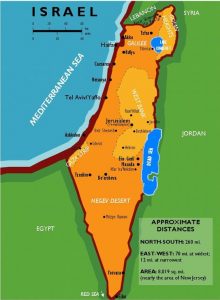
It is historical fact, that over the years the Untied States and Russia have found themselves on opposite sides of a war…even threatening to blow each other up with a nuclear bomb, but so far, both have also hesitated to take things to that level, because the start of that kind of war would likely bring inhalation, since each country has the ability to know that such an attack has started. It’s a good thing that technology has given us that ability, because if we had the nuclear bombs we now have and no way the know that an attack had commenced, one nation could easily wipe out another. Russia has often tested the United States when they have moved to attack weaker nations for the things they wanted, such as oil, food, and power. Their actions left the United States with no other options but to fight against the nation that was sometimes an ally. It has happened in the past, and it will happen again in the future, because Russia remains an enemy of Israel, and that at the very least, is a situation in which the United States would want to act. Israel has always been our ally…not a sometimes ally, and if we are able, we would protect them. At least I pray that we would.
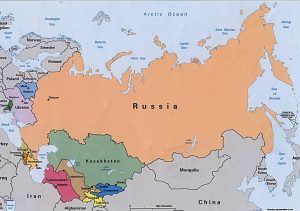 The biggest factor to affect the relationships between countries is their leaders. Most of the history of the United States has found our leaders acknowledging and even embracing our longtime, and very important friendship with Israel. Nevertheless, some leaders, like our current president, have made it clear that Israel is in a precarious position in the world. I am thankful that our president elect has told us that he will be a friend to Israel and other nations that have been oppressed by power nations in the past. It remains to be seen, exactly where Russia will be in this scenario. It is my hope that they will be an ally, but I know that they are still an enemy of our friends, and that can only make us sometimes allies.
The biggest factor to affect the relationships between countries is their leaders. Most of the history of the United States has found our leaders acknowledging and even embracing our longtime, and very important friendship with Israel. Nevertheless, some leaders, like our current president, have made it clear that Israel is in a precarious position in the world. I am thankful that our president elect has told us that he will be a friend to Israel and other nations that have been oppressed by power nations in the past. It remains to be seen, exactly where Russia will be in this scenario. It is my hope that they will be an ally, but I know that they are still an enemy of our friends, and that can only make us sometimes allies.

